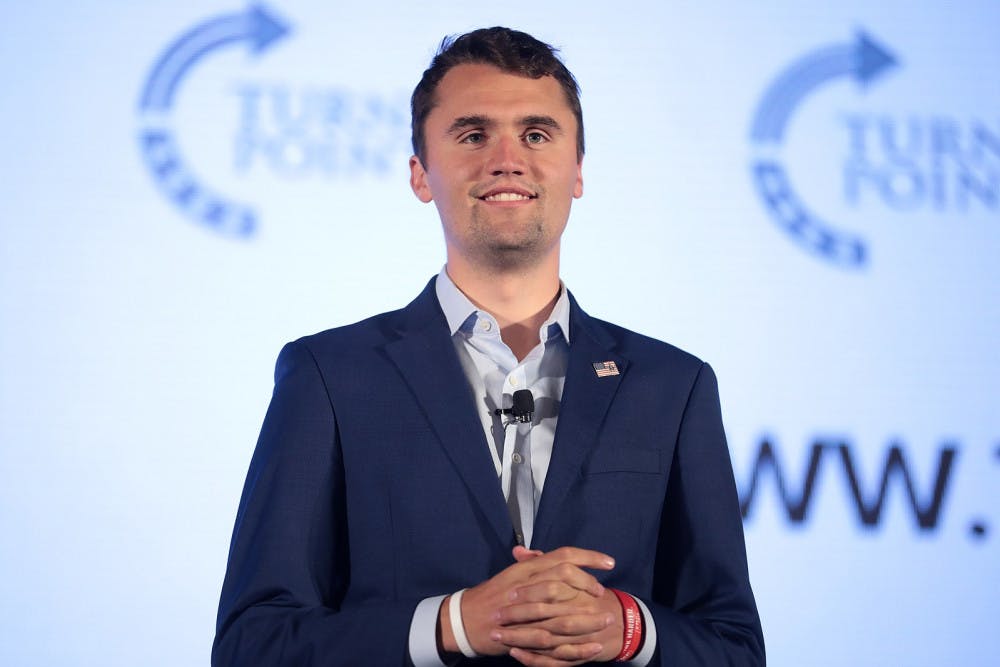The Echo of a Megaphone: The Rise and Abrupt Silence of Charlie Kirk
In the turbulent landscape of American politics, few figures burned as brightly or as fiercely as Charlie Kirk. He wasn't a senator, a governor, or a cabinet member, yet his influence arguably rivaled many who held those titles. For a decade, his voice was a constant, booming presence on the right—a megaphone for the MAGA movement, a champion for a new generation of conservatives, and a lightning rod for controversy. And then, almost overnight, that voice went quiet. To understand the silence, one must first understand the noise he created.
Charlie Kirk’s story began not in a storied political dynasty but in the suburbs of Chicago. In 2012, at the age of 18, foregoing a traditional college path, he co-founded Turning Point USA. It was an audacious venture, born from a frustration with what he saw as a left-wing dominance on college campuses. What started as a small nonprofit grew, with astonishing speed, into the country’s largest and most influential conservative youth movement. Turning Point USA became a fixture on campuses nationwide, known for its slick marketing, aggressive debate tactics, and its controversial „Professor Watchlist,“ which cataloged academics accused of discriminating against conservative students.

But Turning Point was merely the launchpad. Kirk himself was the main event. With a preternatural gift for public speaking and a keen understanding of the burgeoning social media ecosystem, he crafted a persona that was part political pundit, part inspirational speaker, and part cultural warrior. He became a central player in the network of pro-Trump influencers, a trusted ally who could mobilize an army of young supporters with a single post or podcast episode.
His proximity to power became undeniable during the Trump presidency. President Donald Trump not only embraced Kirk but openly credited him with playing a crucial role in his 2024 campaign, particularly in bringing young voters and, notably, voters of color into the Republican fold. This assertion, while debated by political analysts, cemented Kirk’s status as a key figure within the MAGA universe. He was more than a supporter; he was seen as an architect of its youth outreach.
This relationship was cultivated through a close friendship with the president’s eldest son, Donald Trump Jr. The two were often seen together, traveling as far as Greenland in January, projecting an image of a new, younger, and more aggressive Republican guard. Kirk’s influence was further demonstrated when he emerged as an early and vocal supporter of Senator JD Vance for Vice President, a move that signaled his clout in shaping the future of the party.

Kirk’s empire was vast and multi-platformed. His account on X, formerly Twitter, boasted an audience of 5.5 million followers, a digital congregation to whom he preached daily. His podcast and radio program, „The Charlie Kirk Show,“ reached over half a million listeners each month, offering a steady stream of right-wing commentary on every conceivable issue. He was a regular face on Fox News, even guest-hosting flagship programs like „Fox & Friends,“ the ultimate seal of approval within the conservative media establishment. Through this media machine, combined with a relentless schedule of speaking engagements and bestselling books like his 2020 hit, „The MAGA Doctrine,“ Kirk built a personal fortune and an unshakable brand.
Unlike many influencers who leverage their platform for a position in Washington, Kirk’s ambitions were different. According to a revealing profile in The New York Times, he never sought an official role within any administration. His goal was grander, more fundamental. „We want to transform the culture,“ he stated, a mission that framed his every move. He saw himself not as a politician, but as a cultural revolutionary aiming to reshape the very fabric of American society and, in doing so, remake the Republican Party in his image.
His strategy was one of direct and often brutal confrontation. He was a merciless critic of what he termed the „mainstream media,“ accusing it of bias and corruption. He threw himself into the most contentious culture-war battles, taking provocative stances on race, gender, and immigration. This confrontational style was the core of his appeal. To his supporters, he was a courageous truth-teller, unafraid to say what others were thinking. To his detractors, he was a divisive and dangerous provocateur, fanning the flames of social discord for personal gain. He thrived in this polarized environment, his support base growing more loyal with every attack he weathered.

He posted constantly, his feed a real-time reflection of his worldview. He commented on everything, from geopolitical events to local news stories, always framing them through a conservative, anti-establishment lens. It was this very habit, this need to be constantly engaged in the fray, that would ultimately lead to his undoing.
The catalyst was a tragic, isolated news story: the unprovoked and fatal stabbing of a white woman by a Black man. It was the kind of event that, in Kirk’s hands, became fodder for a broader cultural narrative. On a Tuesday, he took to X, crafting a post that connected the horrific crime to his long-held arguments about societal decay and racial tension. The specific words he used were seen by critics as a deliberate and dangerous escalation of his rhetoric.
The backlash was instantaneous and overwhelming. It was different from previous controversies. This time, the condemnation came not just from the left, but from figures within his own party who felt he had crossed a line from which there was no return. The post was described as an unforgivable act of racial incitement. In the digital age, a career built over a decade can be dismantled in a matter of hours. Sponsors pulled their support from his show, speaking venues canceled his appearances, and the social media platforms that had been the bedrock of his empire took decisive action. The megaphone had been unplugged.
The silence that followed was jarring. The constant stream of posts, podcasts, and television appearances ceased. The man who had been a ubiquitous presence in American political life vanished from it, leaving behind a legacy as complex and controversial as the era he helped define. Was he a visionary who gave voice to a disenfranchised generation, or a demagogue who profited from division? The answer likely depends on who you ask, but what remains undeniable is the sheer force of his impact, and the profound void left by his sudden and stunning exit from the stage.



